Contents
Academic Leave
Important information on an academic leave and the application for leave of absence can be found on the according website of the Student Administration and Examinations Office.
In addition, the most important regulations are described in the “Statutes of Ulm University on Admission and Enrolment for Studies”, which can be found here. Important: No examinations may be taken during a semester of leave of absence - subject to certain exceptions such as repeat attempts, which can also be found on the website of the Student Administration and Examinations Office and in the above-mentioned statutes.
Additional Subjects
If you would like to take additional modules outside of the degree program (or in anticipation of the Master's degree program), you should do so via the complementary area. You can apply for an assignment online (in advance) for modules that have not yet been assigned to your degree program.
ASQ
ASQ stands for General Key Qualification (in German: Allgemeine Schlüsselqualifikation). ASQs can be included in the complementary area in the current examination regulations. Previous examination regulations, included a special area in the curriculum for ASQs. Registration for ASQs takes place via CoronaNG.
Assignment (of modules)
If you would like to take modules that are not yet assigned to your degree program, you must apply for an assignment online in advance. You cannot subsequently add modules offered here that are not assigned to your degree program to your studies via recognition.
Attendance Requirement
There is no general attendance requirement, even though regular attendance is recommended in all courses.
However, attendance is compulsory for some parts of seminars that involve an interactive exchange of research. Compulsory attendance is determined by the lecturers and announced accordingly. Non-attendance on dates where attendance is compulsory is only possible for good cause and a substitute must be agreed individually with the lecturer.
Bachelor Thesis
See Thesis.
BAföG Certificate of Performance §48
Campus Management System
See LSF.
Campus Navigator
The Campus Navigator helps you find your way around campus. Important destinations are sorted by topic groups and marked with a blue pin.
Campusonline
See LSF.
Central Control Room
See Emergencies.
Central Student Advisory Services (ZSB)
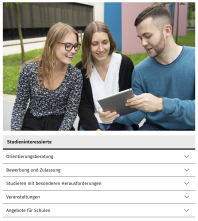
The Central Student Advisory Services (ZSB) help with general information needs or problems during your studies. The ZSB supports you on site, by telephone, video conference or e-mail during the difficult phases of your studies and during the transition period between studying and working.
Centre for Languages and Philology (ZSP)
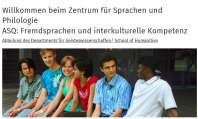
In the area of foreign languages and intercultural competence, the ZSP is dedicated to deepening and expanding foreign language skills and developing intercultural competence.
Certificate
See Final Certificate.
Certificate of Achievement
A certificate of achievement (in German: Leistungsnachweis) is an ungraded (passed/not passed) piece of coursework that must be passed in order to complete a module. You can find out in the module handbook in which courses certificates of achievement are issued instead of graded examinations. The course catalog specifies what is required for achieving the certificate.
See also the section on prerequisites.
Certificate of Performance §48 BAföG
The Exam Board is responsible for issuing a certificate of achievement in accordance with § 48 BAföG and provides further details on its website. Confirmations for graduation assistance are issued by the Student Administration and Examination Office.
Cisco Client
See VPN Client.
Complementary Area
Depending on the course of study, at least 0 to 4 ECTS must be achieved in the complementary area. Like the compulsory elective area, the complementary area can be overbooked, i.e. you can complete more modules than required. You can also use the complementary area in the Bachelor's degree in particular to already complete modules for a later Master's degree. If you would like to take a module that is not yet assigned to your module handbook, you must submit an application for module assignment in advance. An assignment will be approved provided there are no restrictions due to capacity or knowledge transfer reasons.
Modules from the complementary area do not have to be completed. A failed module from this area can be replaced by another module within the area.
Completion of Studies
The certificate is issued by the Student Administration and Examinations Office at the student's request, provided that all the requirements for a degree have been met. The application is made by e-mail to studiensekretariat(at)uni-ulm.de. Exmatriculation then takes place ex officio at the end of the semester.
Compulsory Area
The compulsory area consists of compulsory modules. These are modules that are mandatory for students within the degree program. These must be passed.
Compulsory Elective Area
A certain number of credit points must be earned in a compulsory elective area. However, there is a choice between different modules. Compulsory elective modules thus allow a certain degree of specialization. In the compulsory elective area (as in the complementary area), modules for which an examination has not been passed do not have to be completed.
Computer Science Student Council (FIN)

The Computer Science Student Council (in German: Fachschaft Informatik, short FIN) represents the students of computer science-related degree programs. It is formed by students who are committed to student interests in the department and are happy to welcome new members.
Convenda
CoronaNG
CoronaNG is part of the campus management of the University of Ulm. It is used to enable registration for closed events. In the Department of Computer Science, the system is used for modules in the supplementary area/ASQs. You can log into CoronaNG using your KIZ account.
Course Overview
You can find an overview of all courses offered in your degree program for each semester in the LSF. This also applies to courses offered by the Center for Language and Philology, the Humboldt Centre for Philosophy and the Humanities and the kiz.
Courses
Modules consist of one or more courses, e.g. a lecture and an exercise. The course overview tells you which courses are offered in a particular semester.
Credit Point (CP)
See ECTS.
De-Registration
See Withdrawal.
Deadline Extension
The Exam Board for Computer Science or the Exam Board for Cognitive Systems informs and decides on possible extensions of deadlines.
EB
See Examination Board.
ECTS
One ECTS point (also known as a credit point or CP or LP from the German word Leistungspunkt) corresponds to approximately 30 hours of working time. There is no minimum number of ECTS points that must be achieved per semester. This means that even if you are enrolled for a semester but do not take any exams (for example, because you are doing an internship semester for which you cannot take a leave of absence), you do not lose your right to take exams. However, all ASPO and FSPO deadlines must still be met (with the exception of exceeding a deadline for reasons not your own fault) so that you do not lose your right to take exams.
Elective Area
Emergencies/Central Control Room
Is there a medical or other emergency? Dial 112 (without area code) directly!
The central control room is responsible for monitoring the building's technical systems and receiving general fault reports by telephone. The control room can be reached around the clock on 22225 and in emergencies on 22222.
Examination
You will receive the credit points for a module after passing the (partial) examinations of the module. The module description specifies possible forms of examination, e.g. a written examination, an oral examination, a term paper or a project paper with presentation of the results. The specific structure of the examinations in a semester can be found in the examination planning system. Times, rooms and permitted aids are also specified there. For written examinations, you must have registered in Campusonline at least 4 full calendar days before the examination. For oral examinations, you must also register there and then arrange the examination date with your examiner.
Examination Board
Examination boards are responsible for all examination matters in the degree program. Typical concerns are deadline extensions, recognition of academic achievements, compensation for disadvantages and learning agreements. Within Computer Science, the Examinations Board Cognitive Systems is responsible for the MSc Cognitive Systems, while the other study programs are handled by the Examination Board Computer Science
Examination Bonus
See Grade Bonus.
Examination Dates
Examinations usually take place twice a year. Possible examination periods are at the end of the semester (last week of lectures and the first three weeks of the lecture-free period) and at the beginning of the semester (last three weeks of the lecture-free period and first week of lectures). Dates for oral examinations or project and seminar presentations are arranged individually and may deviate from the time periods. The exam planning system always shows you the currently planned examination dates.
Examination Name
See Examination Number.
Examination Number
The correct examination number and the name of the examination for which you have to register can be found in the LSF (after logging in) under “Browser module descriptions”. Navigate to the module in your degree program. As soon as you click on the module, the examinations belonging to the module will be displayed. The exam name does not have to correspond to the name of the module or course. Some courses have several examinations assigned to them (e.g. through assignment to different modules). Therefore, please always make sure that you are actually registering for the correct examination. Each module (also: each compulsory elective module) can only be taken/examined once. Even if the examination is assigned to different areas, the credit can only be used in one area.
Examination Planning System (PPS)
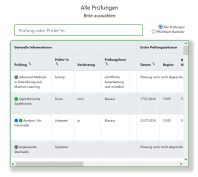
Examinations are planned over the course of a semester. For examinations in the department of computer science, the necessary information such as the type of examination, time, permitted aids or the rooms will be communicated in good time via the examination planning system (in German: Prüfungsplanungssystem, short PPS). Please make sure that the current semester is set (selection top right) and note that examination registration must be done via Campusonline.
Examination Procedure
When you start an examination, you open an examination procedure. The examination procedure is only completed when the examination has been passed. In the compulsory area, all examination procedures must be completed in order to successfully complete the degree program; in the compulsory elective and complementary areas, examination procedures can remain open as long as the required number of credit points has been earned.
Examination Registration and De-Registration
You can usually register for examinations in the LSF. There you select the relevant module in which the examination should/could be credited and register for the examination with the appropriate examiner. The examiners do not necessarily have to be the lecturers who taught the course. The examiner is usually listed as the responsible lecturer in the course catalog. Always make sure you enter the correct exam number when registering.
Important notes
- For all written examinations (written exams) and when taking the written part of a portfolio examination, registration (via LSF) must take place at least four days before the specified examination date, i.e. at least five days before the examination, in accordance with Section 21 (3) of the General Study and Examination Regulations. Example: The examination takes place on 20.07. (examination date) - registration (four days before the examination date) is possible until 15.07. at 23:59. For all other types of examination, the registration deadline set by the examiners applies. If you do not register by the deadline, you are not entitled to take the exam.
- Withdrawal from written and oral examinations (via LSF) is possible up to the day before the examination. Withdrawal from seminar papers is no longer possible after the registration deadline! If the withdrawal is not made by the deadline, the examination is deemed to have been failed. If a medical certificate is submitted immediately, the Student Administration and Examination Office will enter a withdrawal with certificate instead of a failed examination.
- Oral exam have a deadline as set by the examiner.
- If you fail an exam, you will not be automatically registered for the next exam. You must register again independently in the LSF.
- As many examination dates in the second examination period already fall into the following semester, it is usually only possible to register after you have re-registered for the coming semester. Until then, an error message will be displayed.
- You can only register once for each examination number (with the exception of previous failed attempts).
Examination Regulations
We strongly recommend that all students have read both the subject-specific study and examination regulations (see also FSPO) and the general study and examination regulations (see also ASPO) of Ulm University at least once.
Examination Repetition
Exercise
Exercises often complement the lectures. Some exercise tasks are to be prepared at home are discussed in the exercise class, while others might be solved directly in the exercise class. The number of participants in the exercise is usually limited in order to ensure good supervision.
Extension of the Studies
By re-registering for the coming semester, you can also extend your studies beyond the standard period of study without submitting an application or similar (taking into account the maximum duration of studies, of course).
Externally Supervised Thesis
See Thesis.
Failed Attempt
A failed attempt is defined as failing an examination. Failed attempts only appear in the transcript of records, but are not listed on the final certificate. You can find the rules for failed attempts under Repetition of Examinations.
FIN
Final Certificate
The certificate is issued by the Registrar's Office at the student's request after successful completion of the last module examination. If it is not requested, it will be issued automatically after the maximum duration of study has expired.
Your degree certificate will list at least
- the name of the degree program
- modules taken, specializations, grade and scope in credit points
- the topic, the grade of the Master's thesis and the scope in credit points
- the final grade and the overall assessment
If credits from other study and examination regulations, another degree program at Ulm University or at another university have been recognized, this will be noted on the certificate. The certificate bears the date of the last examination. In addition to the certificate, the Registrar's Office will issue a certificate of conferral of the academic degree (BSc/MSc) with the same date. In addition, a Diploma Supplement is issued, which provides information on the content and form of the qualifications acquired with the academic degree. A Transcript of Records is attached to the Diploma Supplement, in which all modules passed and all examinations passed, all credit points allocated to the coursework and examinations and all assessments are listed.
Diplomas, certificates and attestations are issued in the language of the degree program (in German); an English translation is attached in each case.
The degree certificate and diploma will be sent to you by post.
Formal Prerequisite (for a module)
For some modules, certain formal prerequisites (such as having already passed previous modules or prior achievements) are required before you are allowed to take part in the module. You can look up whether a formal prerequisite is required for a module in the module handbook in the LSF (assessment method: “Participation in the examination requires an ungraded prerequisite”). Once a formal prerequisite has been passed and entered in the transcript of records, it remains valid even if the associated examination was not taken or has to be repeated. The prerequisite therefore does not have to be completed a second time.
Prerequisites listed in the module handbook under “recommended prerequisites” are merely recommendations, but not mandatory (i.e. formal) prerequisites. See also the section on prerequisites.
General Study and Examination Regulations
The General Study and Examination Regulations (ASPO) define the rules for your studies. The ASPO is supplemented by the Subject-Specific Examination Regulations (FSPO). You can find the current FSPOs and the ASPO here.
Getting Started with Programming
The "Getting Started with Programming" programme is a voluntary offer that is primarily aimed at students who are interested in learning computer science. Due to the different ways in which computer science is taught in schools, there is a high degree of inhomogeneity in this subject.
This inhomogeneity is compensated for by a semester-long programming course, which takes place in the form of tutorials. Thanks to the good supervision ratio and the learner-friendly atmosphere without pressure, a kind of mentoring relationship develops here between supervisors and students, which also extends into higher semesters.
Grade Bonus
In some modules, students who pass the module examination are granted a grade bonus of 0.3 or 0.4 up to the next better intermediate grade in accordance with ASPO §24 (3) if certain academic achievements have been passed in advance (usually successful participation in exercises). A grade improvement from 5.0 to 4.0 is not possible.
HSSP
See University Sports.
Humboldt Centre for Philosophy and Humanities (HZ)
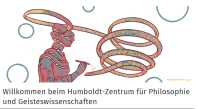
The HZ offers students of all subjects the opportunity to look beyond their subject area and to question their own thinking and actions critically and interdisciplinarily.
Inability to Take an Examination
Students who are unable to take an examination due to illness must submit a medical certificate of incapacity to the Student Administration and Examinations Office. The relevant form must be completed by a doctor.
Irregular Exam Date
See Examination Dates.
IT Status
You can check the status and availability of some network and server services on the kiz website. If a campus service is not working for you, you can use this page to check whether it is due to your PC or the service itself. The query is available for the following services, among others: EMail, LSF, Moodle, CoronaNG, WLAN.
kiz
The Communication and Information Center kiz operates numerous services such as Campusonline, Moodle, literature databases as well as software and hardware services and the university telephone directory, for which the portal offers you central access.
Labs
Laboratories in computer science fall under the project project.
Learning Management System
See Moodle.
Lecture Hall Finder
With the lecture hall finder you can not only find lecture halls on campus, but also PC pools, seminar rooms and printer locations.
Lectures
In a lecture, learning content is usually conveyed to a larger group. Lectures are usually given by the professors. Lectures are often supplemented by exercises and sometimes also by labs (projects).
Library
The library offers around 400 reading and work spaces. Additionally, there are 21 reservable work cubicles (weekly and daily cubicles). Many professional journals can be accessed online via literature databases. If a desired book is missing, you can submit a purchase request directly to the library or order the book via interlibrary loan. The kiz also offers introductory courses and videos on library use.
Literature Databases
If you are logged in via the university network (Eduroam or Cisco VPN client), then you have access to various online databases with specialized literature. This link will take you to the corresponding page of the kiz and from there via DBIS to the various databases, for example IEEE Xplore, ACM Digital Library or Web of Science.
Literature Research
See Literature Databases.
LSF
LSF (in German: Lehre Studium Forschung) is the most common name of the university information system (in German: Hochschulinformationssystems, short HIS), but it is known under many names, including Portal Studium & Lehre, QIS-POS, QIS-LSF and Campusonline. It can be accessed at campusonline.uni-ulm.de. The LSF provides the following functionalities:
- Student administration
- examination regulations
- Study plans
- Certificates (e.g. Certificate for BAföG)
- Exam administration (including exam registration and transcript)
- Course catalog (in German: Vorlesungsverzeichnis, short VVZ) including course overview, weekly timetables or canceled courses
- Module handbooks
Lukengast - Study Room Finder
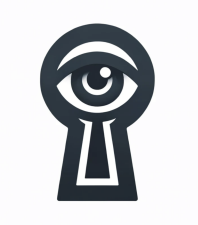
Are you and your study group looking for a free seminar room? With Lukengast, the service group informatics (SGI) offers a service to view the current availability of seminar rooms.
Mailing Lists
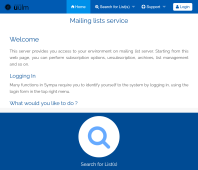
At the university, a lot of information is still distributed by e-mail. In the mailing list portal, you can see which mailing lists you are subscribed to and also subscribe to many other lists. This keeps you informed about various topics. In some lists you are automatically a subscriber (e.g. all students of a department). Information sent via these mailing lists is usually really important and should be heeded in any case. Make sure that you can read emails sent to your university address.
Master Thesis
See Thesis.
Maximum Duration of Study
You may extend the duration of your studies beyond the standard period of study up to the end of the examination period of the 10th semester in the Bachelor's program (11th semester if studying according to FSPO 2021) or the 7th semester in the Master's program (ASPO § 8 para. 1). When extending the period of study, please note that BAföG is only paid for the standard period of study, unless valid reasons for extending the period of study (e.g. prolonged illness, child care) can be proven. It is possible to extend your studies beyond the standard period of study without submitting an application or similar. For this, re-registration must have taken place and the maximum duration of study must not have been exceeded. Due to the corona pandemic, extensions have been set for the maximum study periods.
Microsoft Office
See Office.
Mobility Window
See Study Period Abroad.
Module
A module is a teaching unit that consists of one or more courses and to which a number of credit points are allocated. A module usually lasts one or two semesters. Modules usually conclude with an examination. In case the exam is passed, the credit points are awarded. All details of a module, e.g. the assessment methods or formal and content requirements for participation, are recorded in a module description and all module descriptions for modules on your degree program can be found in your module handbook.
Module Handbook
The module handbook describes in great detail which modules must or can be attended during the degree program. It is derived from the examination regulations and can be found here. In the module handbook, you can also read which examination numbers belong to the individual modules. In addition, under “Assessment method”, you will find a list of formal requirements (see Formal Prerequisites for modules) that you need for the respective module. You can also see there, whether you need to have completed any prerequisites for a module.
Moodle
Moodle is the university's central learning platform. For each course, you will find lecture and exercise documents, announcements and also exercise submissions via Moodle. Links to the Moodle courses are announced in the lectures, are stored in Campusonline or can be found via the Moodle search.
Music Centre (MUZ)

The MUZ organizes concerts, performances, exhibitions and much more, including art lectures, performances and readings. In addition, it offers opportunities such as an arts studio, sound studio, photo lab, improvisational theater, ballet, experimental music and art as well as a writing workshop to engage in activities outside your field of study.
MUZ
See Music Centre.
Office
Students have the opportunity to purchase Microsoft Office 365 Pro Plus for private use or to obtain an unlimited license of Microsoft Windows 10 Education. Further information can be found here.
Overall Grade
Information on determining the overall grade can be found in the General Study and Examination Regulations, § 24 Assessment of exams, final grade, overall assessment. For Computer Science programs, the Subject-Specific Study and Examination Regulations (§ 18 Overall grade) determine which modules are included in the overall grade (modules relevant to the final grade). If you have completed more work than required in the compulsory elective or complementary area, the best graded modules will be included until the minimum number of credit points is reached.
PBS
Plagiarism
The Examination Board Cognitive Systems provides information on the topic of plagiarism in English.
Portal for Studying & Teaching
See LSF.
PPS
See Exam Planning System (in German Prüfungsplanungssystem, short PPS).
Primary Examiner (Thesis)
See Thesis.
Prerequisites (for Modules)
Modules can have content-related (recommended knowledge) and formal prerequisites, i.e. preliminary work such as attendance, exercise sheets, etc. that must be completed before the actual examination can be registered for. You can look up whether a prerequisite is required in a module in the module handbook. Formal prerequisites are rarely used.
Project
Projects are a type of course as defined in the Subject-Specific Study and Examination Regulations. The labs within computer science also count as projects.
Psychosocial Counseling Service (PBS)
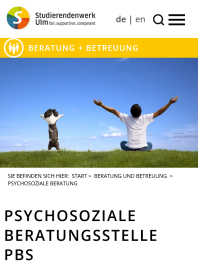
The PBS offers students competent advice and help in solving psychosocial problems and issues in individual counseling sessions (in German or English). The PBS advises you individually on learning difficulties, exam anxiety, personal problems and difficulties in your studies and everyday life.
Recognition of Achievements
Information and required forms (in English) for the recognition of previously completed exams (for example, from a previous study program or from another university) can be found on the page of the Exam Board Cognitive Systems. Please pay particular attention to the deadlines mentioned there for applying for the recognition of these achievements. Once a performance has been recognized, it cannot be undone. If you wish to include modules offered by Ulm University in your program that are not currently assigned to your study program, you must apply for a module assignment in advance.
Repetition of Examinations
Most examinations that have not been passed can be repeated twice. Exceptions to this are
- the Master's thesis and seminars, which can only be repeated once;
- in the Bachelor's degree programs in Computer Science, Media Informatics and Software Engineering of the FSPO 2022 (see §19), certain exam can be repeated three times (these examinations must be retaken within the following two semesters) and up to two passed compulsory module examinations may be repeated once for the purpose of grade improvement (the better grade counts);
- in the Bachelor's degree programs in Computer Science, Media Informatics, Software Engineering and Künstliche Intelligenz of the FSPO 2021 exams (apart from Master's thesis and seminars) can be repeated an unlimited number of times until the exam is passed.
Failed attempts are shown in the transcript of records, but not in the certificate. Please also note the information on examination registrationn.
Important: Modules from the compulsory elective and complementory areas do not have to be completed. Failed modules from these areas can be replaced by other modules within their respective areas (provided there are other modules within these areas that you have not yet taken).
The following applies to examinations for which a prerequisite is required for registration: Once a prerequisite has been passed and entered in the transcript of records, it remains valid even if the associated examination has not been taken or has to be repeated. This means that the prerequisite does not have to be taken a second time.
Returning a Thesis Topic
The topic of a thesis can only be returned once after registration at the Student Administration and Examination Office and only within the first month after registering the thesis. A new topic must then be registered within six weeks. It is only possible to return the topic in the second attempt of the thesis if there was no change of topic in the first attempt.
Re-Registration
Information on re-registration can be found on this page of the Student Administration and Examinations Office.
RPO
German acronym for Rahmenprüfungsordnung, which is by now called „Allgemeine Studien- und Prüfungsordnung“, short ASPO (in English: General Study and Examination Regulations).
Second Examiner (Thesis)
See Thesis.
Seminars and Seminar Registration
Scientific and methodological skills are developed in the seminars. Seminar places for the topics offered are allocated centrally in Moodle before the start of each semester. Detailed information can be found on the overview pages for seminars.
Service Group Informatics (SGI)
The SGI operates and maintains all computer facilities used for teaching in the Faculty of Computer Science and operates services such as the Student Assistant Job portal.
SGI
SK
See Study Commission; SK is an acronym for the German term Studienkommission (study commission).
SONA
Studies that are remunerated with test subject hours in the Department of Computer Science are managed via the SONA system. Students can view all the studies offered in SONA and register for any studies they wish. After successful participation, the test subject hours earned are recorded in the system.
Standard Period of Study
The standard period of study is 6 semesters for the Bachelor's degree and 4 semesters for the Master's degree.
Student Assistant Jobs
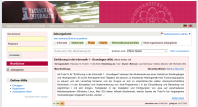
You can find and apply for student assistant positions directly via the student assistant job platform (HiWiBörse) called Convenda.
Student Administration and Examinations Office
The Student Administration and Examinations Office (in German: Studiensekretariat) manages students' examination files. It provides advice on topics such as re-registration, changing degree programs, academic leaves/semesters off, examination registrations and tuition fees. Completed theses must be handed in to the Student Administration and Examinations Office at the end of the degree course.
Student Sevices
See Studierendenwerk.
StudienLernWerkstatt (Learning to Study)
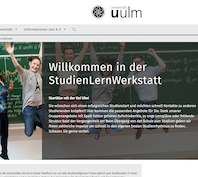
The StudienLernWerkstatt offers numerous support programmes that build a valuable bridge between school and university, especially in the introductory phase, and ensure a successful start to your studies. In computer science in particular, you will find offers such as "Getting Started with Programming" (in German: Programmierstarthilfe, short PSH), MathLab or special revision courses (in German: Repetitorien) to repeat the lecture material and prepare for exams.
Studiensekretariat
Study Commission
A study commission consists of professors, academic staff and students and deals with the further development of the content of the degree programs and the approval of financial resources for teaching. The commission also decides on module assignments. There is a web form for applying for module assignments in your degree program. The commission is chaired by the Dean of Studies.
The Study Commission Computer Science is responsible for the degree programs Informatik (BSc&MSc), Künstliche Intelligenz (MSc), Medieninformatik (BSc&MSc) and Software Engineering (BSc&MSc). The Study Commission Cognitive Systems is responsible for the MSc Cognitive Systems.
Study Credits
Students of the examination regulations 2022 must complete 10 test subject hours (10 study credits) as part of the compulsory module "Empirische Forschugsmethoden der Informatik (EFI)". The study credits are obtained through the participation in studies. You can complete these throughout your degree programme. How many subject hours you receive for a study depends on the time actually required for participation. Which studies are currently being offered and how many subject hours you receive for participating in a study is displayed in the SONA study management system. After successful participation, the earned test subject hours are recorded in the system. All studies that are remunerated with trial subject hours in the Department of Computer Science are processed via this system.
Study Management System
See SONA.
Study Period Abroad
All important information on going abroad can be found at the International Office. Due to the more flexible recognition options, a stay abroad is best planned in study periods with many elective courses. In the Bachelor's program, the planned mobility window is therefore in the 5th semester. The Master's programme consists mainly of elective modules, so a stay abroad can be integrated flexibly.
Important: Due to the long lead time, please inform yourself at least one year before your planned stay abroad!
Study Plan
The study plan gives you an overview of the modules to be completed during your studies. The currently recommended study plan can be found in the LSF in the study plans section.
Studierendenwerk

The Studierendenwerk Ulm (student services) takes care of issues such as food and drink (mensa, canteen, cafeterias), student grants and other financial matters, accommodation as well as advice and support.
Subject-Specific Examination Board
Subject-Specific Study and Examination Regulations
The subject-specific study and examination regulations (in German: Fachspezifische Studien- und Prüfungsordnung, in short FSPO) are the set of rules for your degree program, which define, for example, which areas and compulsory modules your degree program consists of. For Cognitive Systems, the FSPO 2024 currently applies. For other Computer Science students, the FSPO 2022 is the current one and older students finish their program according to the FSPO 2021. The basic framework of the subject-specific study and examination regulations is determined by the General Study and Examination Regulations (in German: Allgemeine Studien- und Prüfungsordnung, short ASPO) of Ulm University. It is strongly recommended that you read the applicable examination regulations and the ASPO very carefully at least once (as, among other things, they set important deadlines for your studies). You can find the currently valid FSPOs and the ASPO here.
Thesis
Theses may only be issued by the university. Registration is done through the Student Administration and Examinations Office. Theses in cooperation with companies are generally possible, but often require a lot of coordination and should therefore be planned in advance. Bachelor's theses have one examiner; Master's theses have two. For Cognitive Systems, one examiner must be from the list of examiners approved for Cognitive Systems; for other degree programmes, one examiner must be from the Computer Science department of Ulm University! The second examiner of the Master's thesis, in consultation with the Examination Board, can also come from other universities or research institutions. For students in the FSPO 2021, the thesis must be registered no later than 3 months after completing all other exams (according to the General Regulations 2017, §16c Abs. 1). The Bachelor's thesis can either be completed in 9 weeks full-time or part-time over 6 months. The Master's thesis is always 6 months full-time. The return of the topic is possible once without penalty under certain conditions. If you fail the thesis, you can repeat it once. In this case, you cannot write on the same topic as in the first attempt.
Some institutes provide you with a template; otherwise, the university also has a template (available from within the university network or via VPN).
Timetables
Unlike the study plan, the timetable provides an overview of the times and locations of the current courses for a degree program and the semester in which the modules are assigned. For elective modules, an overview of all modules is provided from which students can then choose according to the module handbook.
Transcript of Records
A transcript of records can be printed out as a PDF in the LSF under the heading “Administration of exams”. This certificate is required by the BAföG office, among others. This certificate shows all of your achievements, including additional achievements. It also shows the corresponding ECTS points and any failed attempts.
Tutorial
Tutorials are a special form of exercise. Students from higher semesters support their fellow students in completing the exercises. The aim of a tutorial is to practise or apply the content learned in the lecture. Tutorial groups tend to be smaller than exercise groups.
University Sports (HSSP)
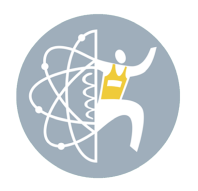
In addition to its own fitness studio (UNIFit), HSSP offers a wide range of sports, including ball sports, martial arts, fitness, dancing, mountain sports and more. In addition, courses are also offered to promote mental health in order to better cope with the stresses of everyday university life.
Voting Tasks
Voting tasks are sometimes set as part of exercises. For these, no written submission is made in advance, but the voting tasks are to be presented directly in the exercise group.
VPN Client
With the help of the Cisco VPN client, you can also log into the university network from outside the university. This is necessary, for example, to use specialist journals or to download official presentation templates from Ulm University. Where and how you can download the client is described here. There is a short tutorial on how to set up the VPN client under “Establishing a connection”.
Weighting of Grades
See Overall Grade.
Withdrawal
Information on withdrawal (exmatriculation, de-registration) is available on this web page of the Student Administration and Examinations Office.
Written Examination
See Examination.
